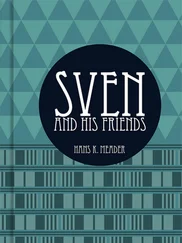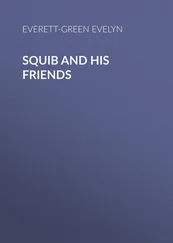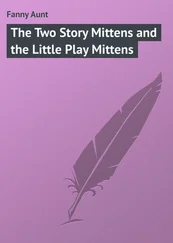Marshall Saunders - Golden Dicky, The Story of a Canary and His Friends
Здесь есть возможность читать онлайн «Marshall Saunders - Golden Dicky, The Story of a Canary and His Friends» — ознакомительный отрывок электронной книги совершенно бесплатно, а после прочтения отрывка купить полную версию. В некоторых случаях можно слушать аудио, скачать через торрент в формате fb2 и присутствует краткое содержание. Жанр: foreign_children, foreign_antique, foreign_prose, на английском языке. Описание произведения, (предисловие) а так же отзывы посетителей доступны на портале библиотеки ЛибКат.
- Название:Golden Dicky, The Story of a Canary and His Friends
- Автор:
- Жанр:
- Год:неизвестен
- ISBN:нет данных
- Рейтинг книги:5 / 5. Голосов: 1
-
Избранное:Добавить в избранное
- Отзывы:
-
Ваша оценка:
- 100
- 1
- 2
- 3
- 4
- 5
Golden Dicky, The Story of a Canary and His Friends: краткое содержание, описание и аннотация
Предлагаем к чтению аннотацию, описание, краткое содержание или предисловие (зависит от того, что написал сам автор книги «Golden Dicky, The Story of a Canary and His Friends»). Если вы не нашли необходимую информацию о книге — напишите в комментариях, мы постараемся отыскать её.
Golden Dicky, The Story of a Canary and His Friends — читать онлайн ознакомительный отрывок
Ниже представлен текст книги, разбитый по страницам. Система сохранения места последней прочитанной страницы, позволяет с удобством читать онлайн бесплатно книгу «Golden Dicky, The Story of a Canary and His Friends», без необходимости каждый раз заново искать на чём Вы остановились. Поставьте закладку, и сможете в любой момент перейти на страницу, на которой закончили чтение.
Интервал:
Закладка:
“Girls,” he said scornfully; “they’re more like old women. Well, anyway, they’re afraid of mice and rats, and when Squirrie wakes up and scampers across the boards to his pantry to get a nut, and rolls it about, and gnaws it, and nibbles it, they nearly have a fit, and run to the landlady and hurry her up the three flights of stairs.
“She listens and pants, and says, ‘It must be a rat, it’s too noisy for a mouse.’ Then she goes down cellar and gets a rat-trap and props its big jaws open with a bit of cheese and sets it in a corner of the room.
“Squirrie watches them through a tiny hole in the trapdoor in the ceiling that he made to spy on them, and he nearly dies laughing, for he loves to tease people, and he hisses at them in a low voice, ‘The trap isn’t made yet that will catch me. I hope you’ll nip your own old toes in it.’”
“What very disrespectful talk,” I exclaimed.
“Oh, he doesn’t care for anybody, and the other night his dreadful wish came true, and he was so delighted that he most lost his breath and had squirrel apoplexy.”
“How did it happen?” I asked.
The sparrow ran his little tongue out over his beak, for he dearly loves to talk, and went on, “You see, the bachelor ladies were moving their furniture about to make their room look prettier, and they forgot the trap, and Miss Maggie did catch her toe in it, and there was such a yelling and screaming that it woke me out of a sound sleep.
“The lodgers all came running upstairs with fire extinguishers, and flat irons, and pokers, and one man had a revolver. I thought the house was on fire, and I flew out of my little hole in the wall to this tree. I came here, and from a high limb I could look right in the attic window. The lodgers were all bursting into the room and poor Miss Maggie, in curl papers and pink pajamas, was shrieking and dancing on one foot, and holding up the other with the trap on the toe of her bedroom slipper.
“Out on the roof, Squirrie was bending down to look at her. He was lying on his wicked little stomach, and he laughed so hard that at last he had to roll over in the snow on the roof to get cool. He looked terrible, and we all hoped he was going to pass away in the night, but the next morning as we sat round on the tree talking about him, and trying to think of some good thing he had done, he poked his head out of the hole which is his front door, and made the most ugly faces at us that you can imagine. He is certainly a dreadful creature, and I shall be sorry for the housekeepers about here when the spring comes.”
I smiled at Chummy’s earnestness and settled down more comfortably with my breast against the bricks. The day was so pleasant that I thought I would stay out a little longer. I knew by the look in his little, bright eye that the sparrow liked talking to me. We were in a patch of sunlight that crept in his front door, and after the long cold winter the nice warm feeling on our feathers was very comforting.
“How does Squirrie trouble the housekeepers?” I asked.
“Well, to begin with, he bothers them because he has no home duties. He is an ugly, odd, old bachelor, and never gets a mate in the spring, because no self-respecting young squirrel will take up with such a scamp.”
“Poor creature!” I said. “It is enough to make any one ugly to live alone.”
Chummy went on: “Squirrie has been two years only in this neighborhood. He never stays long anywhere, for his bad deeds make enemies for him, and he is driven away. When he first came here he lived in Snug Hollow, that big hole in the half-dead elm at the corner. Just opposite the tree is a lodging-house. You can see it from here, that one with the upper verandas. It is kept by a soldier’s widow, and she is rather poor. She could not afford to put in window screens, and Squirrie had a royal time with one of her lodgers, a young student up in the third story. He was very odd, and would eat no meat. He lived on nuts, cheese, fruit, eggs, and bread—just the things Squirrie likes. So he made up his mind to board with the student. The young man was a fresh-air fiend, and never closed his windows. This just suited Squirrie, so whenever this young Dolliver went over to the University, Squirrie would spring from a tree branch to the roof, and was down on the veranda and into the room in a trice. He rarely ate anything on the spot. He carried everything away to his hole in the tree, so the student thought that the maid who did his room must be stealing his things.
“He questioned her, but she said she knew nothing about his food. Then he locked the chest of drawers where he kept his supplies. Squirrie climbed up the back, enlarged a knothole and went in that way. The student thought the girl must have a key. So he went to the landlady. She dismissed the maid and got another, but the student’s things went faster than ever.
“The next thing was that the student lost his temper and told the soldier’s widow that she would do well to feed her maid better, and she told him that if he didn’t like her house he could get out.
“However, she sent this second girl away and got another. It was the same old story—nuts, fruit, cheese, bread still vanished. Then the student got in a worse temper, and turned all the clothes out of his trunk and made that his pantry, and carried the key in his pocket.
“Now he lost nothing, for Squirrie, clever as he was, could not get in a locked trunk. He was up a tree, indeed, but he was clever enough to find a way down. The soldier’s widow was his next victim, and he would watch the windows and see where she was, and often when her back was turned he would dart in the house, seize some bit of food, and run away with it.
“‘Now,’ said the soldier’s widow, ‘this last girl is dishonest, too. She can’t get into the student’s trunk, and she has turned against me.’ So she sent her away, though the girl cried and said she was well brought up, and would not steal a pin.
“By this time the house had such a bad name among maids that the soldier’s widow could not get another, and she had too much work to do and became thin and miserable, and still the stealing went on, till at last she said, ‘I must be a thief myself, and don’t know it.’
“However, any one who does wrong is always paid up for it, and Squirrie was soon caught. By this time he was so fat he could scarcely run, and he had enough nuts and hard biscuits laid up to last him for two winters. To keep down his flesh, he began to tease the dog in the lodging-house. Not in the daytime, for he did not wish to be seen. He used to chatter, chatter to Rover as he lay on the porch in the warm summer evenings, and tease him by sitting up on his hind legs and daring him to play chase. There was no cat in the house to head Squirrie off, so he would run round and round the yard and sometimes in the front door, and out the back, with old Rover loping after him, his tongue hanging out of his mouth, and his face quite silly.
“‘The dog has gone crazy,’ said the soldier’s widow one evening, as she saw Rover running about the yard and sometimes down to the old barn behind the house and back again. ‘He will have to be poisoned.’
“Rover was nearly crazy. He left the mischievous squirrel and ran to his good mistress, and put his paws on her knees, but she did not understand and pushed him away.
“I felt terribly and wondered whether I could not do something to help.”
“How did you know all this?” I interrupted. “You would be in bed dark evenings.”
“Why surely you know,” said Chummy, “that all birds of the day tell their news to the birds of the night—to owls, to bats, and even to some insects. Then, in turn, we get the news of the night. I had a very smart young screech-owl watching Squirrie for me.”
Читать дальшеИнтервал:
Закладка:
Похожие книги на «Golden Dicky, The Story of a Canary and His Friends»
Представляем Вашему вниманию похожие книги на «Golden Dicky, The Story of a Canary and His Friends» списком для выбора. Мы отобрали схожую по названию и смыслу литературу в надежде предоставить читателям больше вариантов отыскать новые, интересные, ещё непрочитанные произведения.
Обсуждение, отзывы о книге «Golden Dicky, The Story of a Canary and His Friends» и просто собственные мнения читателей. Оставьте ваши комментарии, напишите, что Вы думаете о произведении, его смысле или главных героях. Укажите что конкретно понравилось, а что нет, и почему Вы так считаете.












